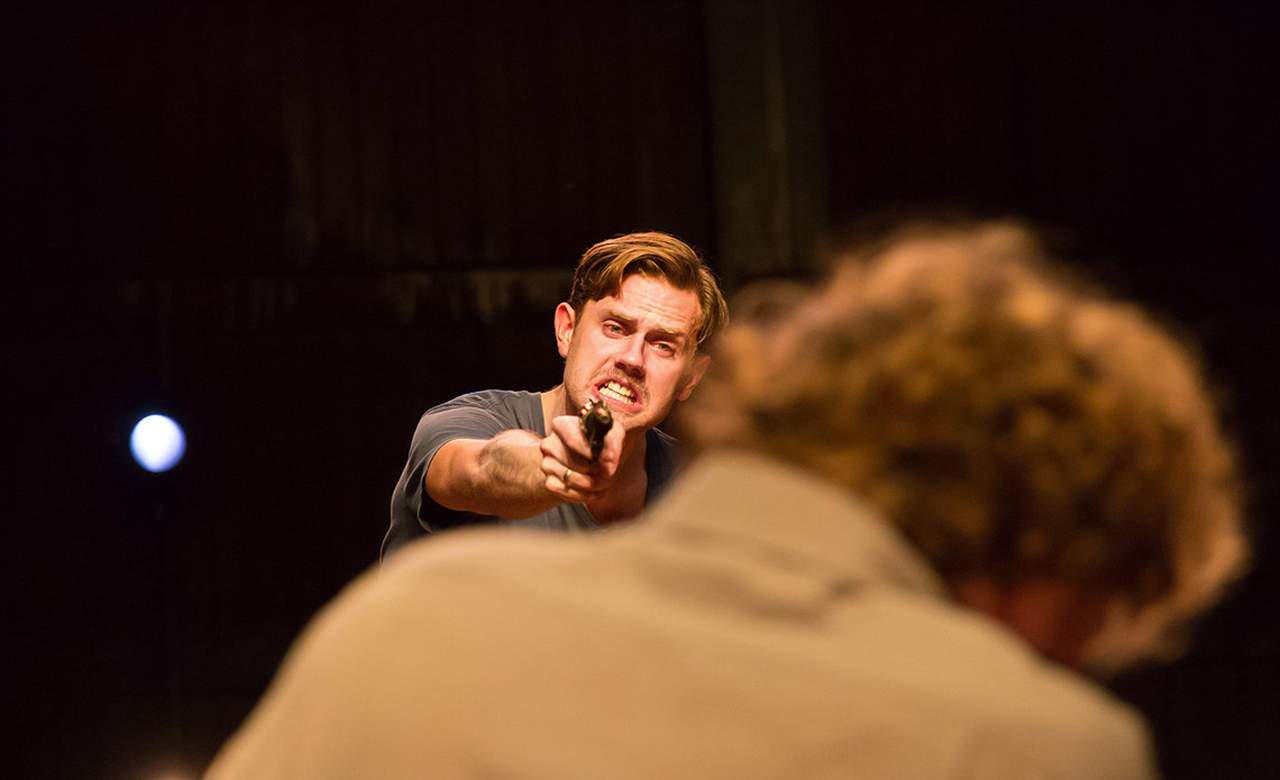Platonov – Catnip Productions
Chekhov may have been dragged into the 21st century, but his ideas remain ever-relevant.
Overview
It's a sweltering summer's day in 19th century Russia. Languishing in the heat are a group of twenty-somethings, a teacher with pretensions toward greatness, his wife, a widow about to lose her estate, her stepson, an old flame, a doctor, a grocer, a criminal, a student and various others. All of them are exhausted; plagued by various existential crises. All of them have a general disregard for what happens next.
Welcome to Chekhov's first serious crack at playwriting. This adaptation of Platonov by Anthony Skuse (who also directed the play) has mercifully cut two hours from the original, not to mention six characters. Although it's still a sizeable cast, everybody pulls their weight. Charlie Garber's Platonov is especially good. He strolls around the casually and mercilessly rebuking his friends as "small, useless people" and then watching in amusement as they fall over themselves to impress him. They cling to him, beguiled by his talk of a better life. What they fail to notice is that Platonov, a schoolteacher, is just as firmly mired in middle-class torpor as they.
Sam Trotman's Sergei, the emptiest of several empty shirts which inhabit the play, is very entertaining with an almost canine desperation for affection and a propensity for spontaneous tears in the face of problems large and small. Sasha, Platonov's thoroughly ordinary and completely satisfied wife, is skilfully performed by Matilda Ridgway. The scene in which she finally confronts her philandering husband is devastating. The set (designed by Skuse), is a sea of wooden chairs of all shapes and sizes. They begin pleasantly clumped in small groups, prepared for a garden party. A chess board and a bottle of vodka are suggestive of the lazy afternoon to ensue. As night falls and despair and desperation take the characters one by one, the chairs are shunted to the side of the stage to form a knot, twisted and chaotic. It's somehow malevolent.
Although unquestionably pacier than its parent text, there are still an inordinate number of subplots to sort through over the play's three-hour running time. More than once I found myself wondering whether another two or three characters might have been given the chop without making too much of a dent in the overall narrative. It's a shame, too, that more has not been done to tone down Chekhov's ending. As it stands, the last 15 minutes sacrifice a great deal of excellent character work by veering alarmingly into melodrama.
Platonov has plenty to offer, though, particularly as the world regresses to diplomatic attitudes reminiscent of the Cold War (shirtfronting, anyone?). Chekhov's exploration of the Russian, and human experience may have been hauled into the 21st century, but it's still a potent reminder that we're all just "so many wretched souls beneath this heavy moon".





